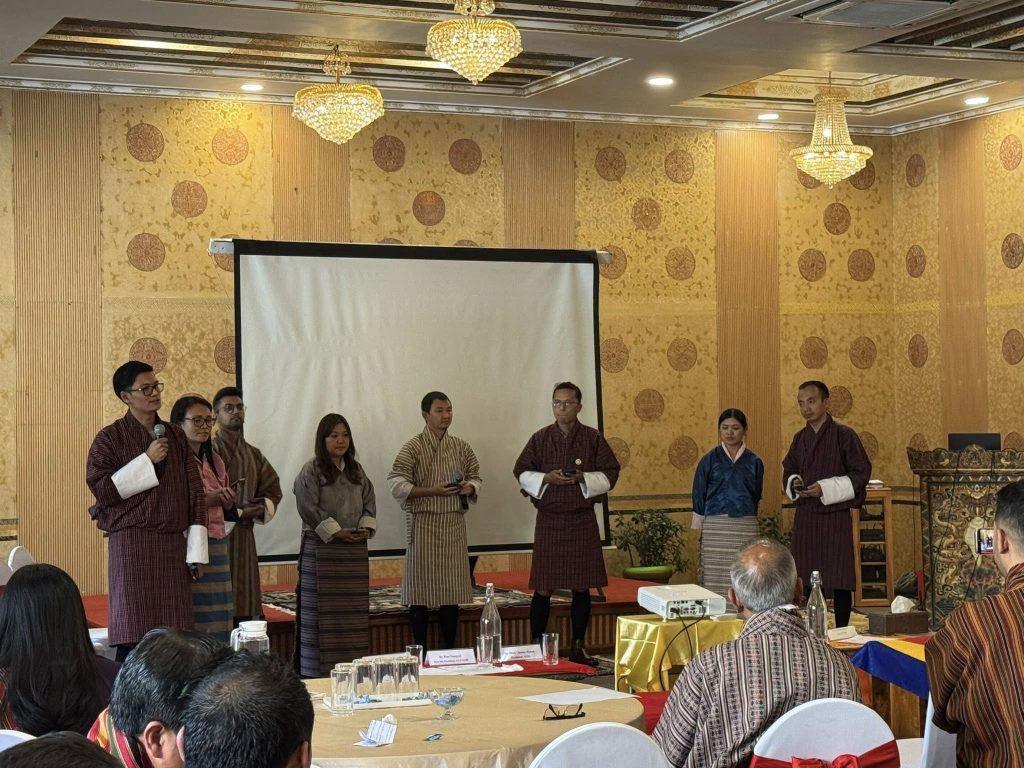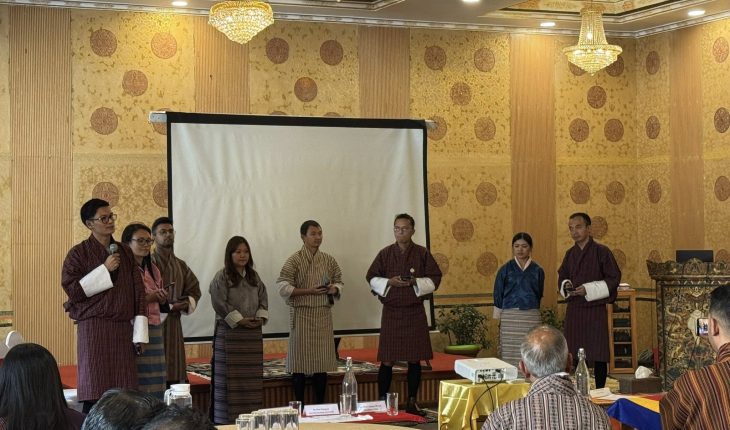
DAWA ZANGMO | Thimphu
o mark World Hospice and Palliative Care Day, the Ministry of Health, Khesar Gyalpo University of Medical Sciences of Bhutan (KGUMSB), and Jigme Dorji Wangchuck National Referral Hospital (JDWNRH), in collaboration with the Asia Pacific Hospice Palliative Care Network (APHN), organized a national symposium to emphasize the growing importance of palliative care in the country.
The gathering provided a platform for experts and practitioners to discuss how Bhutan can strengthen its palliative care system to provide compassionate support for patients with life-limiting illnesses.
Speaking at the symposium, Dr. Tashi Dendup from JDWNRH highlighted that around 70 percent of cancer patients in Bhutan are diagnosed at advanced stages, resulting in longer hospital admissions and increasing pressure on limited acute care resources.
To address this gap, JDWNRH initiated a Home-Based Palliative Care Program in 2018.
“The service has now reached nearly 900 patients both cancer and non-cancer cases in and around Thimphu,” said Dr. Tashi Dendup. “We provide home visits, outpatient consultations, and in ward support. With support from APHN, we’re strengthening training programs and regional partnerships to build local capacity.”
The program offers not only medical support but also emotional and spiritual care to patients and their families. It reflects Bhutan’s approach to health, which aligns with the broader philosophy of Gross National Happiness focusing on holistic well-being rather than cure alone.
The human side of palliative care was powerfully illustrated through a personal story shared by Karma Lhatu, whose 75-year-old mother, Tshomo, was diagnosed with Stage IV Non-Hodgkin’s Lymphoma earlier this year.
After medical treatment options were exhausted, the family turned to the JDWNRH palliative care team for support.
“They helped us shift from fighting the disease to ensuring our mother could live her final days in comfort, dignity, and peace,” Karma Lhatu said. “She passed away peacefully, surrounded by her children and prayers. Thanks to the team, her final moments were filled with love, not suffering.”
Her account moved the audience, highlighting how palliative care not only relieves pain but also restores dignity and peace for patients and families facing end-of-life situations.
While JDWNRH’s home-based initiative has shown encouraging results, experts agree that access to palliative care remains severely limited outside Thimphu. Shortages of trained personnel, essential medicines, and public understanding are among the major barriers.
Dr. Kinley Bhuti, a key advocate for expanding palliative services, said that despite progress, more needs to be done to make such care available nationwide.
“Access to palliative care outside JDWNRH is limited due to a shortage of trained staff, lack of essential medicines like morphine, and poor awareness about what palliative care really is,” Dr. Kinley Bhuti explained.
She emphasized that JDWNRH and the Ministry of Health have been working together to build capacity and extend services beyond the capital.
“With continued support, we need to train primary health workers, ensure a steady supply of essential medicines, and raise public awareness,” she said. “Integrating palliative care into routine primary health services and using home visits or can bring compassionate care closer to people’s homes.”
Dr. Kinley Bhuti also revealed that the MoH and JDWNRH are collaborating to expand home-based palliative care by training health workers in district hospitals and primary health care centers (PHCC).
“We are developing referral and so district teams can receive continuous guidance from the national palliative care unit,” she added. “With the ongoing support of the Ministry of Health, JDWNRH leadership, and district chief medical officers, we are hopeful this can be achieved.”
Healthcare experts at the symposium collectively called for decentralizing palliative care and integrating it into the primary health care system. By training local health workers and using telemedicine, Bhutan could bring vital support to patients in remote communities, reducing the need for lengthy hospital stays.
The expanding community-based palliative care aligns with Bhutan’s social and cultural values, where family and community support play an important role in patient care. Participants agreed that empowering district hospitals and BHUs to deliver home-based care will make end-of-life services more accessible and equitable.
The symposium concluded with a unified call to action from healthcare leaders, professionals, and partners to expand Bhutan’s palliative care network. They emphasized that every Bhutanese, regardless of location, deserves access to compassionate and dignified end-of-life care.
Participants acknowledged that while Bhutan’s palliative care system is still developing, strong leadership from the Ministry of Health, continued collaboration with JDWNRH and KGUMSB, and technical support from APHN are paving the way for sustainable progress.
As the event came to a close, attendees reflected on the day’s discussions as a reaffirmation of Bhutan’s commitment to humanity and compassion.
The growing recognition of palliative care as a fundamental part of the country’s healthcare system marks a hopeful step toward ensuring that no patient has to face the end of life in pain or isolation
“Every patient deserves comfort, dignity, and peace,” said Dr. Tashi Dendup. “That is the essence of compassionate care and it should be within reach of every Bhutanese home.”





